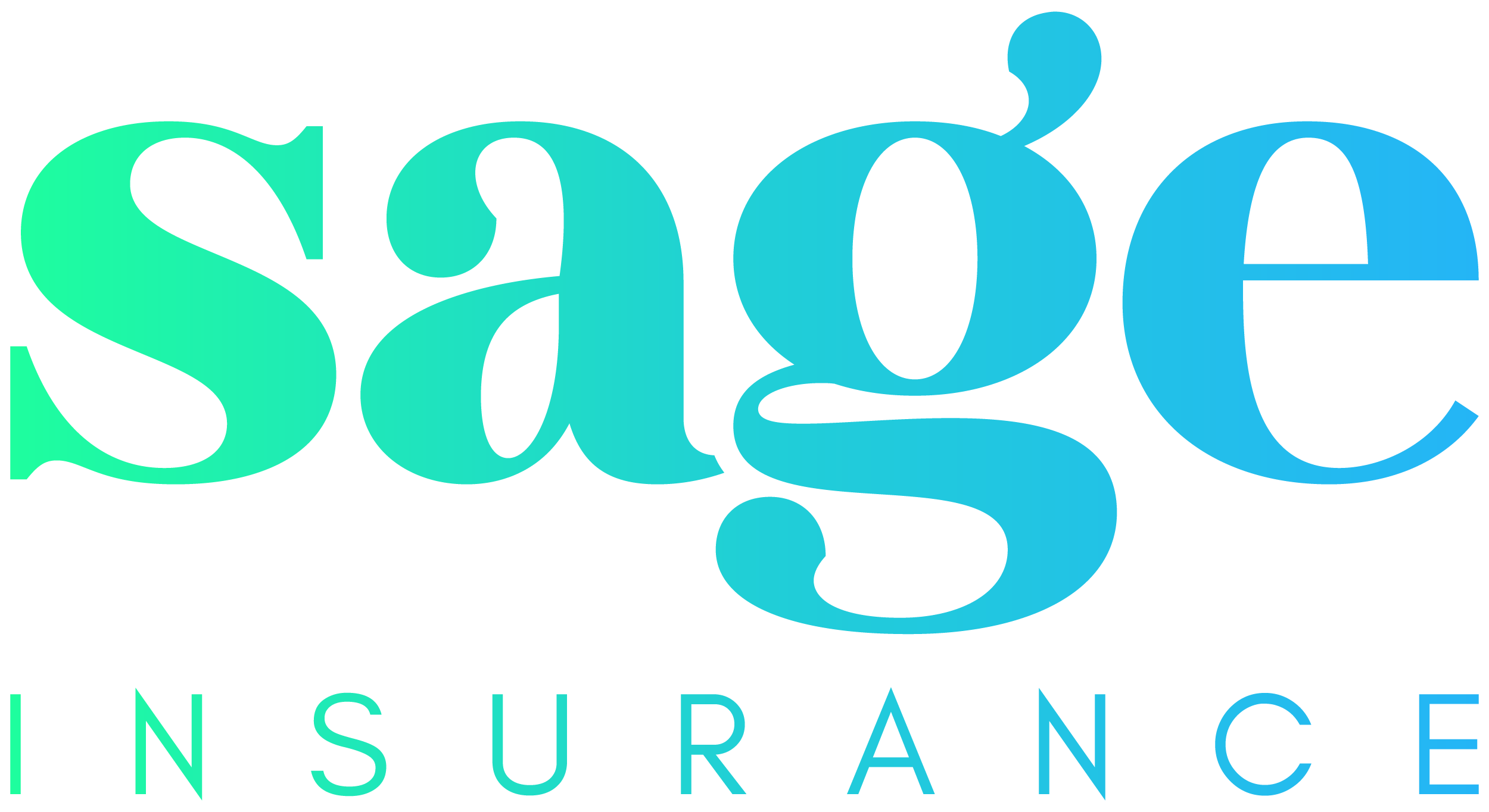


Why Self-Managed Owners Corporations Need an Insurance Broker
Managing an Owners Corporation (OC) can be rewarding, but it’s not without risks. With the growing trend of self-managed OCs, many committees are stepping up to handle everything from maintenance to insurance. But without professional guidance, self-management can leave your building, finances and even committee members personally exposed.
Key Roles of an Owners Corporation
An Owners Corporation, also known as a body corporate, is responsible for maintaining and managing the common property of a strata-titled property, such as hallways, gardens, driveways and building exteriors. This includes tasks like managing finances, arranging insurance and enforcing the rules of the owner’s corporation.
Traditionally, OCs work with strata managers for these tasks. But in recent years, many committees have opted to self-manage, often motivated by:
Perceived cost savings
A desire for control over decision-making
Distrust of some strata managers
While this empowerment feels appealing, the reality is more complex. With the depth of experience across our strata and property team, Sage has strong working relationships with a wide network of reputable Strata Managers. We’re well placed to help identify and recommend the right manager based on your needs and expectations.
The Risks of Self-Management
Running an OC without professional support means that the committee assumes all legal, financial and compliance responsibilities. Here’s what can go wrong:
Non-compliance: Failing to meet obligations under legislation like the Owners Corporations Act
Underinsurance or coverage gaps: Missing critical protections for shared property or liability
Personal liability: Committee members being sued for decisions made on behalf of the OC if office bearers’ liability isn’t in place
Claims chaos: Mismanaging insurance claims and failing to recover what is rightfully yours
Conflict within the OC: Without neutral oversight, disputes between owners can escalate
Case Study
In one case from a suburban development in Melbourne’s East, an OC’s insurance lapsed because one owner held a controlling stake and blocked proper administration.
The result? Security issues, unresolved maintenance and financial exposure for everyone involved.
Why an Insurance Broker Changes Everything
Many insurance companies only deal through brokers or strata managers, meaning self-managed OCs often face limited options. That’s where a broker steps in.
An insurance broker:
Navigates the market: Knows which insurers offer the best value and coverage for your situation and can access a multitude of specialty markets that only deal directly with brokers or strata managers.
Negotiates on your behalf: A broker works for you, securing competitive premiums and the right policy terms to protect your property.
Provides expert guidance: Explains complex coverage (e.g. defects vs. insured damage) so you make informed decisions.
Advocates during claims: Handles the paperwork, negotiates with insurers and pushes for fair outcomes.
Ensures compliance: Helps your OC meet its legal obligations and avoid costly mistakes.
Simply put, brokers are independent experts who protect your property, finances and peace of mind.
What’s Covered Under Strata Insurance?
Strata insurance arranged through a broker typically includes protections such as:
Building and common property: Walls, roofs and shared spaces
Public liability: If someone is injured on shared property
Voluntary workers cover: Protection for committee members who pitch in
Office bearers’ liability: Safeguards committee members from personal legal risk
Machinery breakdown: For lifts, pumps and air-conditioning systems
Catastrophe insurance: Extra cover for major events like bushfires
Government audit and legal costs: For compliance and investigation expenses
Without guidance, OCs risk missing some of these key protections or buying the wrong type of policy altogether.
The Bottom Line
Self-managing an Owners Corporation doesn’t mean going it alone. Insurance is complex, and the consequences of getting it wrong can be severe, from underinsurance to denied claims and personal liability for committee members.
A broker provides the expertise, advocacy and transparency needed to protect your building and everyone invested in it.
If your OC is self-managed, engaging a broker isn’t just smart, it's essential.
Managing an Owners Corporation (OC) can be rewarding, but it’s not without risks. With the growing trend of self-managed OCs, many committees are stepping up to handle everything from maintenance to insurance. But without professional guidance, self-management can leave your building, finances and even committee members personally exposed.
Key Roles of an Owners Corporation
An Owners Corporation, also known as a body corporate, is responsible for maintaining and managing the common property of a strata-titled property, such as hallways, gardens, driveways and building exteriors. This includes tasks like managing finances, arranging insurance and enforcing the rules of the owner’s corporation.
Traditionally, OCs work with strata managers for these tasks. But in recent years, many committees have opted to self-manage, often motivated by:
Perceived cost savings
A desire for control over decision-making
Distrust of some strata managers
While this empowerment feels appealing, the reality is more complex. With the depth of experience across our strata and property team, Sage has strong working relationships with a wide network of reputable Strata Managers. We’re well placed to help identify and recommend the right manager based on your needs and expectations.
The Risks of Self-Management
Running an OC without professional support means that the committee assumes all legal, financial and compliance responsibilities. Here’s what can go wrong:
Non-compliance: Failing to meet obligations under legislation like the Owners Corporations Act
Underinsurance or coverage gaps: Missing critical protections for shared property or liability
Personal liability: Committee members being sued for decisions made on behalf of the OC if office bearers’ liability isn’t in place
Claims chaos: Mismanaging insurance claims and failing to recover what is rightfully yours
Conflict within the OC: Without neutral oversight, disputes between owners can escalate
Case Study
In one case from a suburban development in Melbourne’s East, an OC’s insurance lapsed because one owner held a controlling stake and blocked proper administration.
The result? Security issues, unresolved maintenance and financial exposure for everyone involved.
Why an Insurance Broker Changes Everything
Many insurance companies only deal through brokers or strata managers, meaning self-managed OCs often face limited options. That’s where a broker steps in.
An insurance broker:
Navigates the market: Knows which insurers offer the best value and coverage for your situation and can access a multitude of specialty markets that only deal directly with brokers or strata managers.
Negotiates on your behalf: A broker works for you, securing competitive premiums and the right policy terms to protect your property.
Provides expert guidance: Explains complex coverage (e.g. defects vs. insured damage) so you make informed decisions.
Advocates during claims: Handles the paperwork, negotiates with insurers and pushes for fair outcomes.
Ensures compliance: Helps your OC meet its legal obligations and avoid costly mistakes.
Simply put, brokers are independent experts who protect your property, finances and peace of mind.
What’s Covered Under Strata Insurance?
Strata insurance arranged through a broker typically includes protections such as:
Building and common property: Walls, roofs and shared spaces
Public liability: If someone is injured on shared property
Voluntary workers cover: Protection for committee members who pitch in
Office bearers’ liability: Safeguards committee members from personal legal risk
Machinery breakdown: For lifts, pumps and air-conditioning systems
Catastrophe insurance: Extra cover for major events like bushfires
Government audit and legal costs: For compliance and investigation expenses
Without guidance, OCs risk missing some of these key protections or buying the wrong type of policy altogether.
The Bottom Line
Self-managing an Owners Corporation doesn’t mean going it alone. Insurance is complex, and the consequences of getting it wrong can be severe, from underinsurance to denied claims and personal liability for committee members.
A broker provides the expertise, advocacy and transparency needed to protect your building and everyone invested in it.
If your OC is self-managed, engaging a broker isn’t just smart, it's essential.
Managing an Owners Corporation (OC) can be rewarding, but it’s not without risks. With the growing trend of self-managed OCs, many committees are stepping up to handle everything from maintenance to insurance. But without professional guidance, self-management can leave your building, finances and even committee members personally exposed.
Key Roles of an Owners Corporation
An Owners Corporation, also known as a body corporate, is responsible for maintaining and managing the common property of a strata-titled property, such as hallways, gardens, driveways and building exteriors. This includes tasks like managing finances, arranging insurance and enforcing the rules of the owner’s corporation.
Traditionally, OCs work with strata managers for these tasks. But in recent years, many committees have opted to self-manage, often motivated by:
Perceived cost savings
A desire for control over decision-making
Distrust of some strata managers
While this empowerment feels appealing, the reality is more complex. With the depth of experience across our strata and property team, Sage has strong working relationships with a wide network of reputable Strata Managers. We’re well placed to help identify and recommend the right manager based on your needs and expectations.
The Risks of Self-Management
Running an OC without professional support means that the committee assumes all legal, financial and compliance responsibilities. Here’s what can go wrong:
Non-compliance: Failing to meet obligations under legislation like the Owners Corporations Act
Underinsurance or coverage gaps: Missing critical protections for shared property or liability
Personal liability: Committee members being sued for decisions made on behalf of the OC if office bearers’ liability isn’t in place
Claims chaos: Mismanaging insurance claims and failing to recover what is rightfully yours
Conflict within the OC: Without neutral oversight, disputes between owners can escalate
Case Study
In one case from a suburban development in Melbourne’s East, an OC’s insurance lapsed because one owner held a controlling stake and blocked proper administration.
The result? Security issues, unresolved maintenance and financial exposure for everyone involved.
Why an Insurance Broker Changes Everything
Many insurance companies only deal through brokers or strata managers, meaning self-managed OCs often face limited options. That’s where a broker steps in.
An insurance broker:
Navigates the market: Knows which insurers offer the best value and coverage for your situation and can access a multitude of specialty markets that only deal directly with brokers or strata managers.
Negotiates on your behalf: A broker works for you, securing competitive premiums and the right policy terms to protect your property.
Provides expert guidance: Explains complex coverage (e.g. defects vs. insured damage) so you make informed decisions.
Advocates during claims: Handles the paperwork, negotiates with insurers and pushes for fair outcomes.
Ensures compliance: Helps your OC meet its legal obligations and avoid costly mistakes.
Simply put, brokers are independent experts who protect your property, finances and peace of mind.
What’s Covered Under Strata Insurance?
Strata insurance arranged through a broker typically includes protections such as:
Building and common property: Walls, roofs and shared spaces
Public liability: If someone is injured on shared property
Voluntary workers cover: Protection for committee members who pitch in
Office bearers’ liability: Safeguards committee members from personal legal risk
Machinery breakdown: For lifts, pumps and air-conditioning systems
Catastrophe insurance: Extra cover for major events like bushfires
Government audit and legal costs: For compliance and investigation expenses
Without guidance, OCs risk missing some of these key protections or buying the wrong type of policy altogether.
The Bottom Line
Self-managing an Owners Corporation doesn’t mean going it alone. Insurance is complex, and the consequences of getting it wrong can be severe, from underinsurance to denied claims and personal liability for committee members.
A broker provides the expertise, advocacy and transparency needed to protect your building and everyone invested in it.
If your OC is self-managed, engaging a broker isn’t just smart, it's essential.





